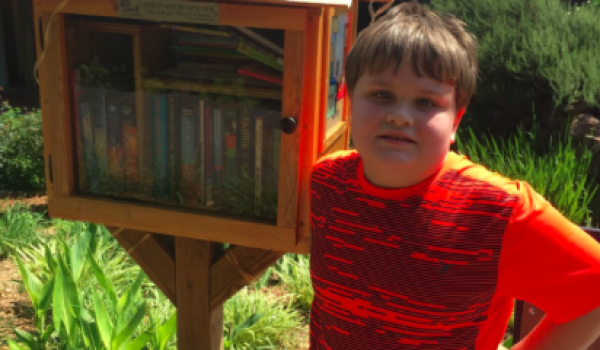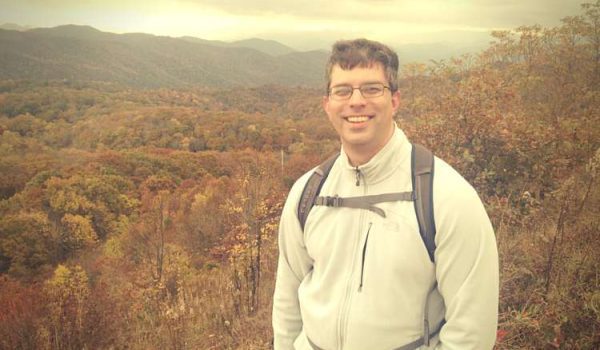by Clint Keels
I’ve hunted my entire life in some capacity or another.
Deer, duck, dove and turkey throughout the Lowcountry and the Mountains.
The primal drive to hunt and gather centers itself in me as much as it does you. It is capability and it is instinct. The reasons and ethics I’ve applied to hunting have grown through the seasons as I continue growing. Meat hunting has become a priority in age – the health benefits are wonderful and it keeps us in the lean on that weekly Publix run. Unless our freezer is dry, these days I’m just as content to sit and watch a 10 point march through troves of acorns and be on his way rather than send my round.
But every young hunter wants to load the elusive big buck or thunderous drumming Tom (male turkey) on the back of a tailgate – I was no different. I sat years of hours as a boy, fixing my gaze on game trails running into cropped fields of cotton and soybean in Williamsburg and Florence County. My rite of passage took order one cold November morning when I was 9 years old, killing my first buck. That was a fundamental oracle kickstarting my lifelong love affair with wildlife conservation and hunting.
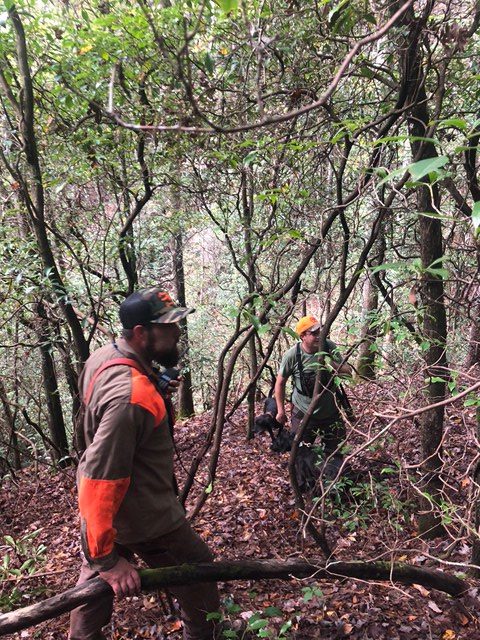
Three decades of hunting on my own, virtue of life and occupation prepared me for one of my most memorable hunts in one of my favorite places; hunting black Bear throughout the Jocassee Gorges.
I have known Chris “Skinny” Rochester for over 20 years now. Skinny is a born and bred Travelers Rest boy I first met when we were still rodeoing hard and getting on bulls. Believe it or not, the greater Travelers Rest area had a thriving young cowboy & cowgirl population twenty years ago. Cowboying stopped for Skinny and I at different junctures, but we maintained our friendship through life’s trials, roads and evolutions all the same.
So this past October when he plugged me into a hunt with him and our other buddy, Dusty Smith, also a local Dacusville cowboy, I said yes immediately. We got up about a week prior to go over gear lists, link-up procedures with other hunters in the field, those responsibilities and other general courtesies of the craft. I consider myself an experienced hunter, but this was my first bear hunt so I tuned in attentively to everything he said that afternoon on the deck, took a few notes and asked a few questions. Skinny and Dusty are well known and respected hunters in the community regionally and beyond. Any advice they pass, I hold to be gold, especially being a green bear hunter. Both are skilled and traditional outdoorsman that can tell you more about the Appalachian ecosystem drunk or in their sleep than somebody with a degree in it can do on their best day at a podium and that is just how that goes. Those boys are those woods.
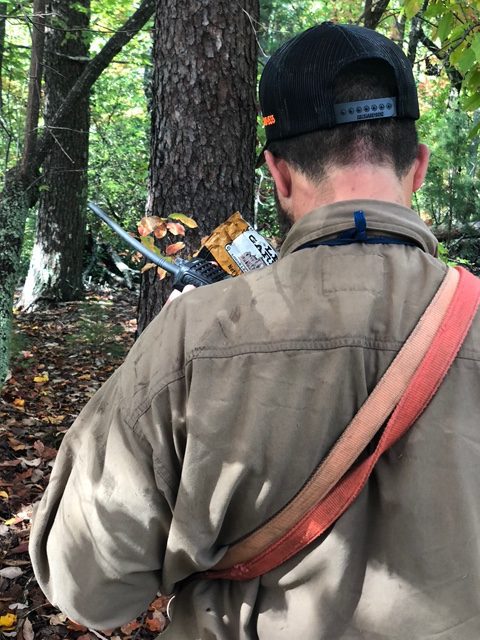
Skinny pulled up in my yard that Tuesday at 4:00 in the morning but I was ready to ride by 3:00. I had us biscuits and bacon wrapped in aluminum foil for the short ride up through Blythe Shoals and on out to 178. We made our turn and snaked a few curves until we saw Tacomas with dog boxes lining the right side shoulder as a Pickens orange sun started to crack the sky. Skinny introduced me to several other men on the hunting party and I listened like a front row pupil to them discuss our plan, huddled around the fog of headlights. Terms like “road man” and “cold-nosed dog” got used in their circle that morning when assigning positions, making last minute checks to the dog’s tracking collars, their tracking devices and other GPS systems.
The objective is to bay or tree a bear, ensuring a quick, safe and humane dispatch. Ostensibly, it is done with dogs and men working in tandem to track and contain, spread out and cover ground; think like some disjointed cousin to a flanking maneuver. It truly is something to see and requires a bond and a relationship between hunter and dog that takes time to cultivate. Interwoven and instinctual trusts between them exist from training and prior tracking when it comes time to get after one. I saw this when Dusty cut his dog loose on a set of tracks. The hunter finds and shows his dog a bear track near a road crossing or game trail to turn them loose off the leash and hunt the bear’s scent. If that cold-nosed dog is on target and gets to hollering then you hear an “off to the races” or an “it’s right” come across the Motorola radio, then you are about to embark on a primal and spirited move to find that bear.
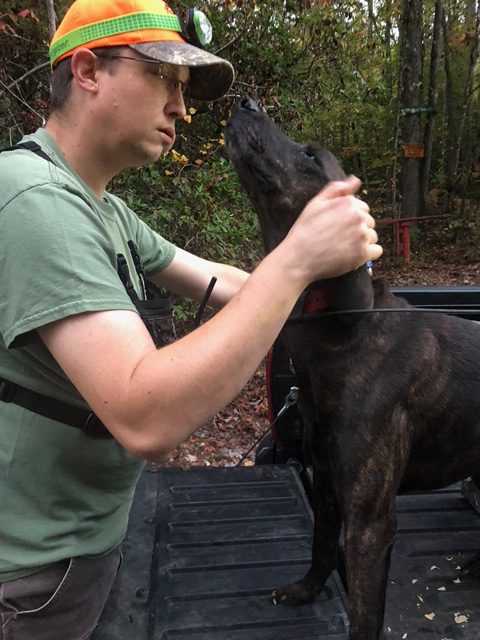
I was beside Dusty on the top of the ridge when he got the call “it’s right”. He had the dogs showing treed on his Garmin just under one mile from our position. Hurried but not running yet, Dusty and I slid down banks of loose and dark earth, crossed one stream, and broke bouquets of Mountain Laurel brush getting back to the holler where Skinny and the dogs had the bear treed. The dogs sounded like a chorus of banshees the closer we got. Dusty continued to confirm status along our way back, stopping momentarily to check his Garmin. We made our final stop, checking distance and direction, ranging just shy of 300 yards behind a small bluff. At that point, we abandoned technology and walked it out until sound turned to sight.
Dusty crossed that last bluff just ahead of me at almost a jog with his 45/70 rifle slung with one hand on the buttstock and his freehand passing limbs back to me so they didn’t smack my face. He saw Skinny with the dogs at the base of a Gum tree and motioned for me to follow him through a clearing down the hill. We slid another 15 yards or so down the slope on our backsides, popping to our feet by Skinny and looking straight up. The bear was treed about 30 feet directly above our heads. That maddening, wild chorus of hounds hit a crescendo as the bear descended closer to us. Upon this up close and personal inspection, Dusty and Skinny made a quick and wise judgement call not to harvest based on an estimate of his size.* The bear slid further down the tree until finding a clear line out and continued on foot out of sight, hushing the dogs.
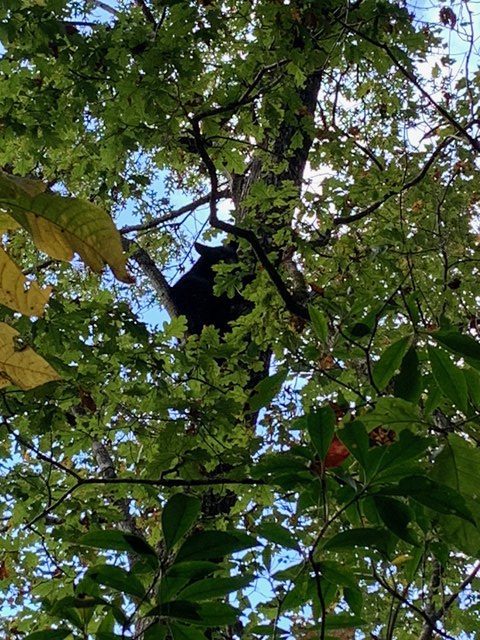
Adrenaline moved through us like pure mountain fury as we came down off the high of the hunt and circled back up with the other boys at our rally point of trucks in the road bottom. Old timers nodded in silent reverence to Skinny, Dusty, and myself, acknowledging the right move and giving that bear another day. As a hunter, as a conservationist, there is a built in love and respect for the animal as much as there is the skill to hunt it. That is something I try to consider and be grateful for every time I prepare a meal with a harvested animal, be it a piece of fish I fry or run of backstrap I cook over wood.
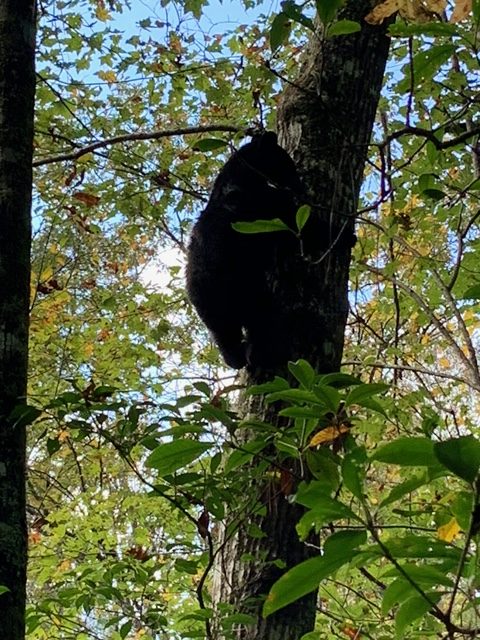
That day ended on the Horsepasture Road at sunset, catching dogs and loading trucks high above the waters of Jocassee. Although we did not harvest a bear that day, Skinny and Dusty would go on to do so that Friday in my absence. We sat around as the sun slinked behind a crown of trees and talked of the day’s experience before shaking hands and making our way home.
As we drove through Pumpkintown back towards Marietta, I found myself in a wash of emotion and gratitude as Skinny and I talked about the human responsibility we have as stewards of our sanctuaries. It is one thing to enjoy the spoils, harvests and rewards given to us by nature. However it is our duty as hunters to treat wildlife and wild lands with a fragile respect and a reverence so that balance may continue to thrive and to be enjoyed by those living on either side of the round. We all live as one on this Earth as human, animal, plant and spirit. That is one thing I do know and one thing I am grateful for.
_______________________________
*Black Bear harvested in the State of South Carolina need to be unquestionably noted by the hunter as exceeding 100 lbs. prior to harvesting and no presence of cubs may be in the area upon harvest.

